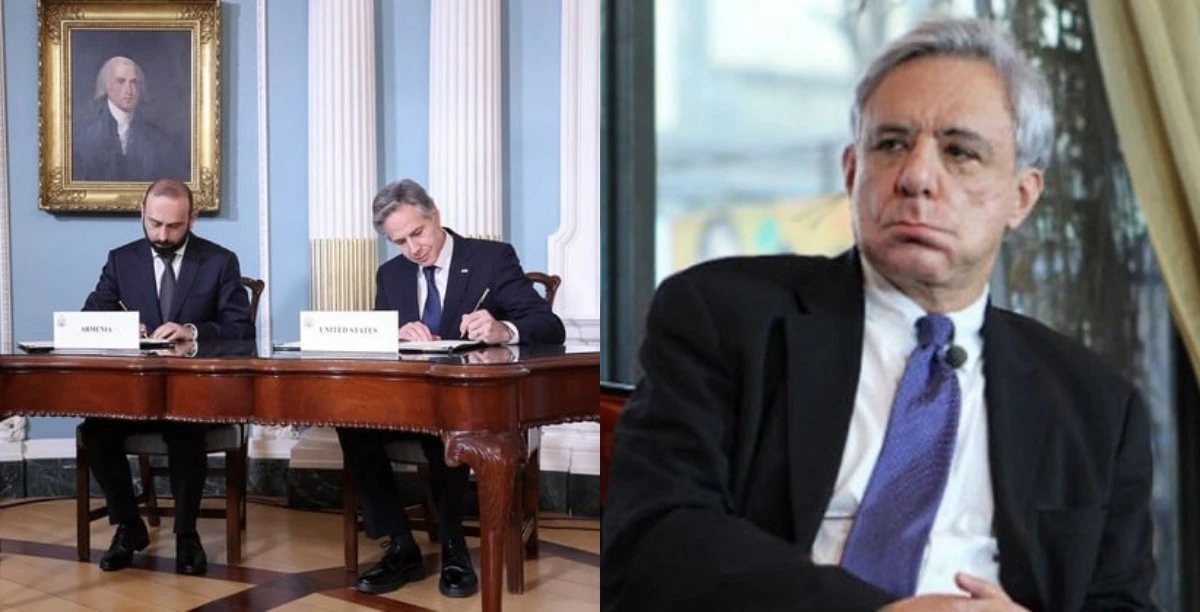At first glance, the Charter on Strategic Partnership signed between the Republic of Armenia and the United States on January 14 may seem like a significant milestone. However, this document is a reflection of Pashinyan's government's shortcomings rather than a result of bilateral progress.
First, the moment of signing the document is questionable. Signing it in the final days of Biden's tenure seems hasty and largely symbolic, lacking any real commitment to addressing Armenia's challenges. Rather than presenting a solid road map for future cooperation, the Charter is rather a bleak assessment of Armenia's security and sovereignty issues, as well as a tacit record of democracy and governance issues.
The document's emphasis on Armenia's sovereignty and territorial integrity underscores the existential threats facing the country, especially in light of recent Azerbaijani aggression. While acknowledging US support for Armenia's territorial integrity, the document does not establish new commitments or guarantees to strengthen Armenia's security. This omission is striking, considering the ongoing border tensions, corridor threats and the mass deportation of Armenians from Nagorno Karabakh in 2023. The lack of concrete countermeasures to Azerbaijan's actions raises the question of whether the US is really offering substantial support or making empty promises.
Another problematic element is the call of the United States to unblock transportation links in the region and normalize relations with its neighbors. These aspirations are not new. their inclusion here seems like a repetition of old sayings, devoid of innovative solutions. An uncomfortable question arises: does the US really understand the complexities of Armenia's geopolitical position, or is it content with empty words?
The Charter's extensive focus on democratic reforms, anti-corruption measures, and judicial independence is more a reflection of entrenched problems in Armenia's governance than a road map for progress. The predominance of such topics in the bilateral agreement emphasizes the inability of Pashinyan's government to solve them effectively. The language, polished with diplomatic politeness, implicitly highlights systemic corruption, the gap in the rule of law and the undermining of democratic institutions.
The document has a significant focus on key areas such as judicial independence, press freedom and civil society development. During Pashinyan's rule, these are chronic omissions, his administration went for an unprecedented consolidation of power, persecuting dissent.
This document will probably cause concern to Armenia's regional allies. The emphasis on partnership with the US, combined with hints of integration into Euro-Atlantic structures, jeopardizes relations with key allies such as Russia. Such language can be interpreted as a departure from the traditional partnership and further exacerbate tensions in an already volatile geopolitical situation.
The focus of the charter on energy diversification and integration into European markets is another problematic point. While these goals align with US interests, they ignore the day-to-day challenges Armenia faces due to its dependence on Russian energy supplies and its precarious position in a region surrounded by major powers.
Perhaps the most controversial aspect of the charter is its implementation. The document is a series of well-intentioned statements that offer no concrete mechanisms for accountability or support. The United States has long included such language in agreements with Armenia, but tangible progress remains elusive. Without strong measures to ensure consistency, this Charter could become yet another symbol of broken promises.
The strategic partnership charter is far from the diplomatic victory that Pashinyan's government represents. Instead, it is a sober assessment of Armenia's vulnerabilities, governance failures, and regional challenges.
The agreement shows how the international community, especially the United States, perceives Armenia under the current government, a country that has suffered great human and territorial losses, deviated from democratic values, and faces growing public discontent.
Although Armenia urgently needs security strengthening, democratic reforms, and international support, it is highly doubtful that the current government has the capacity to achieve these important goals.
Vardan Oskanyan
Former Minister of Foreign Affairs of the Republic of Armenia


